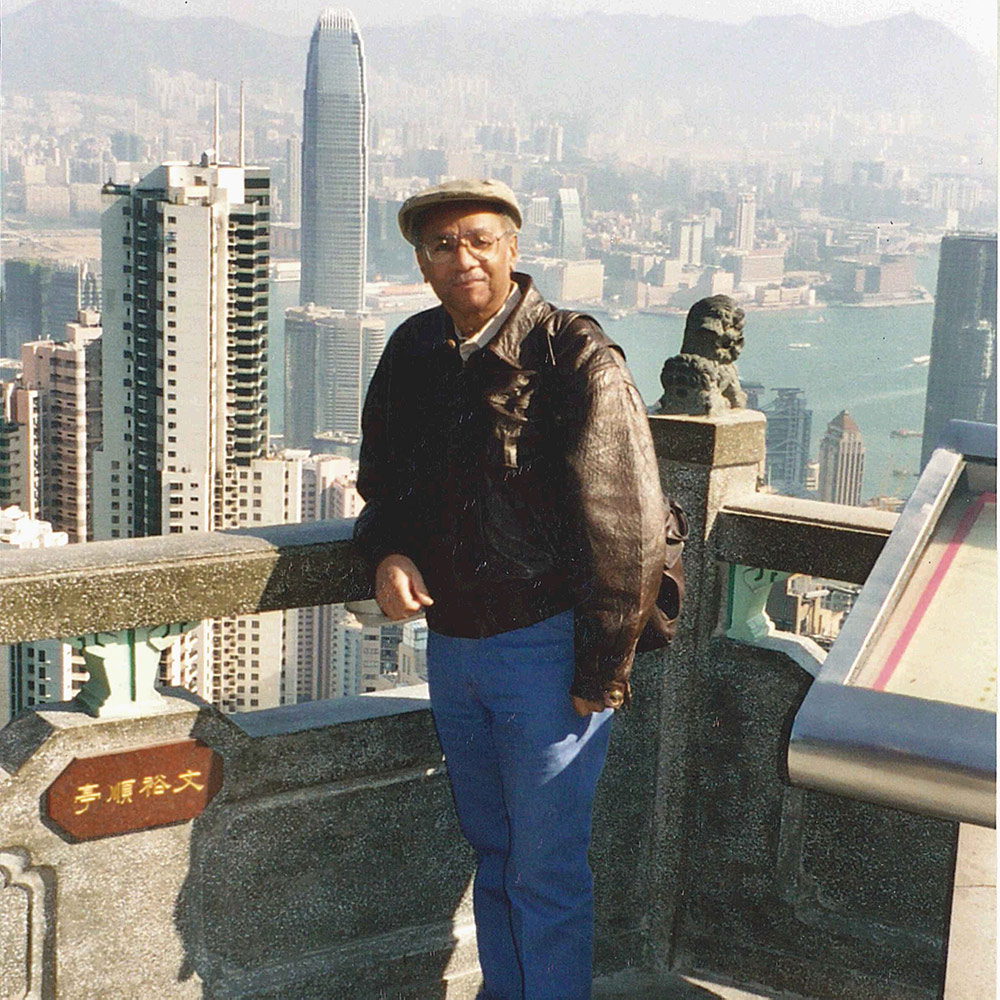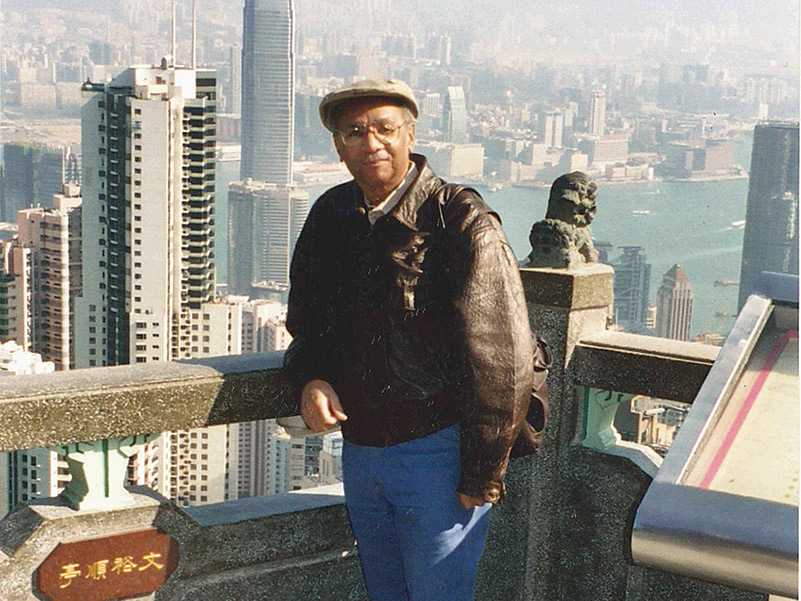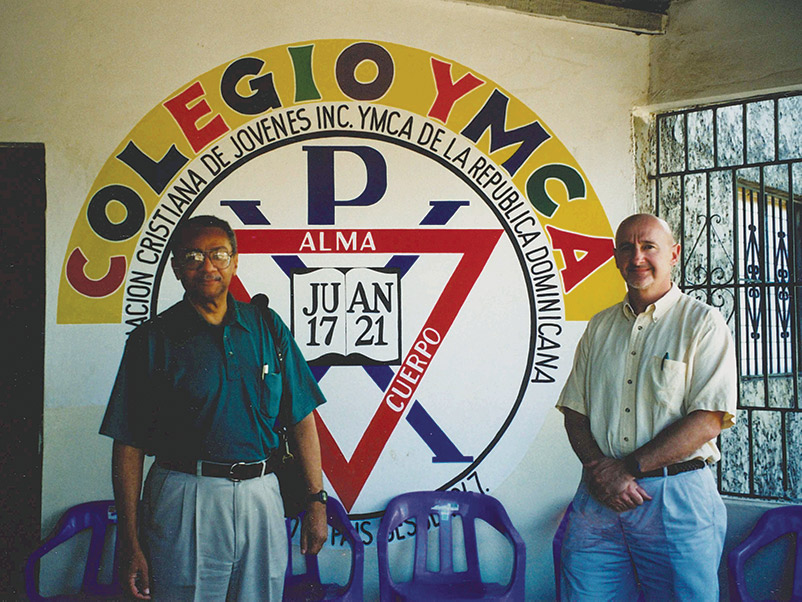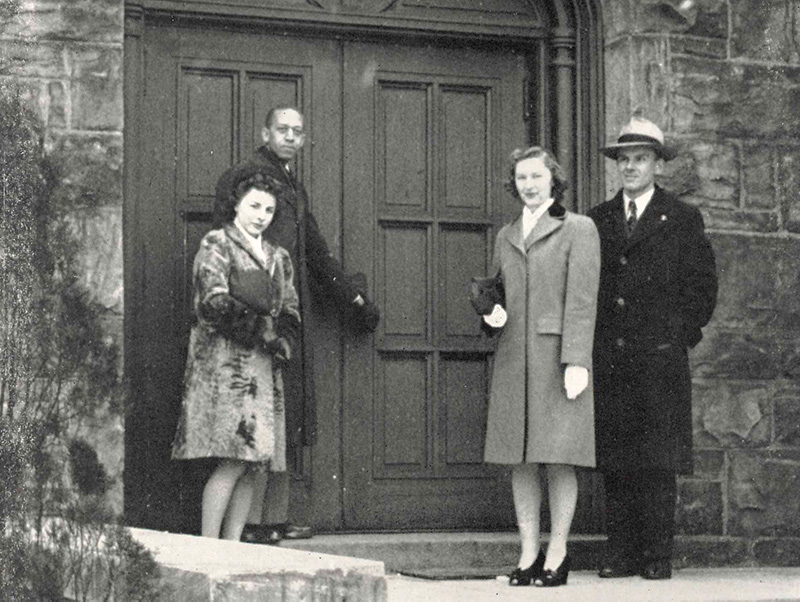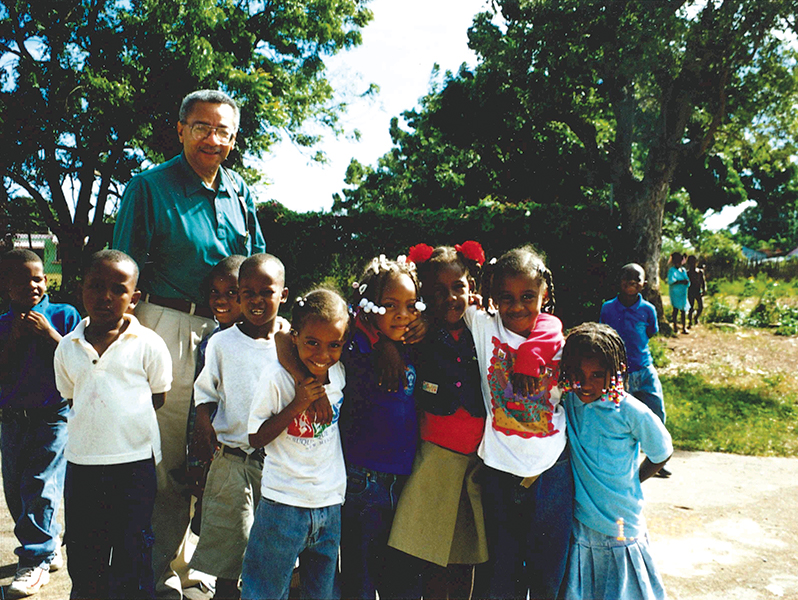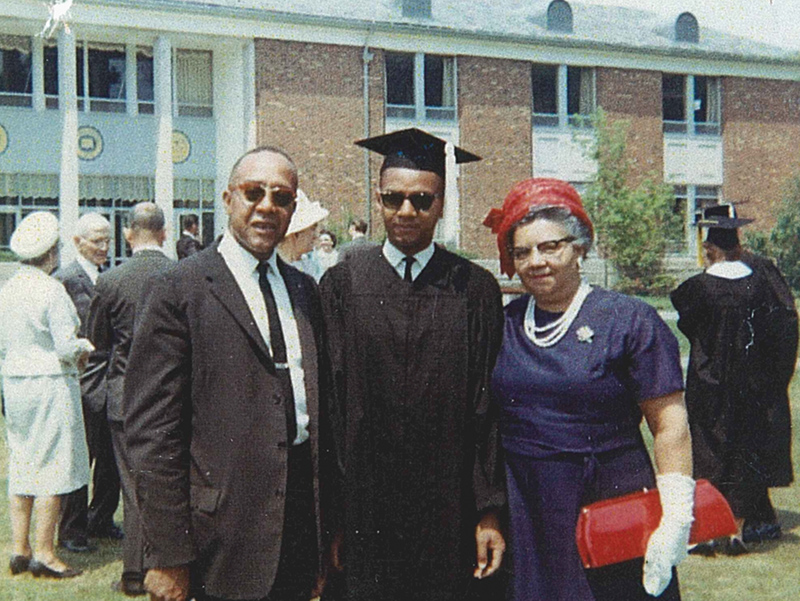Today, Day can see his life's work in communities around the United States. His 40-year career with the YMCA began at the height of U.S. involvement in Vietnam. Day helped with national refugee resettlement efforts, working with the high commissioner for refugees at the United Nations to settle Cambodian, Vietnamese, and Laotian refugees.
"I visit Texas and still see the Vietnamese who settled there as fishermen and are a productive part of the community," Day says. "The Hmong in Minneapolis are part of their communities. I'm proud of that. These were people sitting in camps for years. They've become so productive and they are great citizens. I think that's what America is all about."
As a boy, Day walked to and from the Alfarata Elementary School, now the home of Juniata's Sill Business Incubator. The Day family lived on Warm Springs Avenue near J.C. Blair Memorial Hospital. Day's father tended the gardens and chauffeured President Calvert Ellis '23, and his mother was the housekeeper for the Ellis family. Day's grandmother nannied the Ellis children, including future professor Betty Ann Cherry. Sometimes Day would help his father in the gardens at the Ellis home.
As he grew older, Day realized he wanted to do something more with his life. Having been around Juniata and taken a class there while in high school, it made sense to enroll at the College. But he needed to have studied a language. "I went back to high school for Spanish," Day says, "I used my lunch hour at A&P to go take Spanish at the high school. I got an A."
It was a first taste of the success—and the exposure to other cultures—that was ahead of him. "'Great Epochs' opened my thinking to the whole world," Day recalls. "Later in life I was able to explore the world, and Juniata opened my mind to that. Growing up I didn't think much about things outside of Huntingdon. You get concentrated and you don't realize what kinds of opportunities are outside."
In college, Day caught a presentation made by Peace Corps recruiters visiting Juniata. The presentation kindled his interest in seeing the world. He volunteered, went through the months of training necessary, and embarked on the greatest experience of his life.
RAY DAY '66 IS ONE OF A KIND.
BUT THERE IS ANOTHER RAY DAY.
For many readers, the name Ray Day may ring a bell— and not just for members of the Class of 1966. In the last decade alone, more than 60 students have received Ray Day Scholarships from an endowed scholarship to help them afford to attend Juniata. More than 200 other students from underrepresented groups received other scholarships named to honor his legacy.
But there is more than one Ray Day. The globetrotting helpful person in the story is the nephew of the man who established the endowed scholarship in 1987. Raymond R. Day '45 was one of the first African American graduates of Juniata College. Day led a distinguished career as a professor and sociological researcher at the College of Wooster and director of Beacon House in Chicago—a home created to help families cope with poverty, crime, and other challenges. His work was characterized by years of advocacy to raise awareness and generate solutions to endemic poverty and its related struggles in U.S. cities.
In an address to the Juniata campus in March 1967, Day urged then-President John Stauffer to organize experiences whereby Juniata students could work and learn in what the social worker termed "ghettos," to understand the humanity of people living in their neighborhoods and to help others understand and advocate for change. Day's commitment to civil and human rights characterized all aspects of his career. Today, Juniata awards the Raymond R. Day '45 Social Work Award to students with outstanding academic records and commitment to helping others with a POE in sociology or related areas.
The elder Ray was born in Huntingdon, Pa., as one of seven children. After earning his bachelor's degree at Juniata, Day went on to earn a divinity degree at Pittsburgh Theological Seminary and an advanced degree at Case Western Reserve University in Cleveland, Ohio.
"My deep hope is that it encourages more minority students to apply. When I talk with young African American students, even family members, most people don't understand the value and they fear the cost. I know great opportunities exist for minority students from all around the country at Juniata."Raymond E. Day ’66
The "I had a two-year assignment in Jamaica," he says. "That was my graduate education. My MBA and my Ph.D. When you're out there, you're on your own. I had the four months of training for background, then some prep in Mexico— but then I was dropped in the field."
While in Jamaica, Day started volunteering his time doing literacy tutoring in the local community at night, after his Corps work was finished.
"That was the most rewarding thing for me—working with folks who couldn't read or write and helping them do it," he says. "I got letters from them. When you get a letter from someone you knew three or four years ago could not read or write, it does something for you. Little things mean so much. I still hear from some of those folks today."
Day opened to the world in other ways while at Juniata, as the Civil Rights movement was accelerating. He had personal decisions and conflicts to navigate.
"I knew I was at a point where I had to make decisions, especially about my involvement in student activities in the South," Day recalls. "I was trying to stay focused on my education but I also cared about supporting the movement for major changes in the country."
Day thought about leaving college to dedicate himself wholly to the Civil Rights movement. He sought advice from people around him, including local minister Jerry Witt '59. Witt urged Day to continue his studies while supporting students and the movement.
"I never made the trip down," Day says. "I have had to deal with that internally. I'm not sure when I realized I made the right decision, but at one point I knew I did. Things worked out. I have helped people in other ways".
His most recent help will leave a long legacy. Day has established the Raymond E. Day '66 Endowed Scholarship, which will be used to help students from historically underrepresented groups afford a Juniata education.
"I was looking for what I could do to be helpful to Juniata," Day says. "I owned a house I rented and the tenant passed. I realized I could make a bigger gift if I just gave the house to Juniata, didn't lose value due to taxes, and let them sell it and use the cash to fund a scholarship."
Ray says a conversation with Joel Diamond, senior director of major gifts at Juniata, helped him figure out how to make the real estate gift work.
"My deep hope is that it encourages more minority students to apply," Day says. "When I talk with young African American students, even family members, most people don't understand the value and they fear the cost. I know great opportunities exist for minority students from all around the country at Juniata."
Day's mark on the world is written in the homes of families who emigrated as refugees and in the letters from people who wrote their first words under his teaching. It will be written for a long time to come, as well, in the letters to students that tell them of a scholarship made possible by Raymond E. Day.

